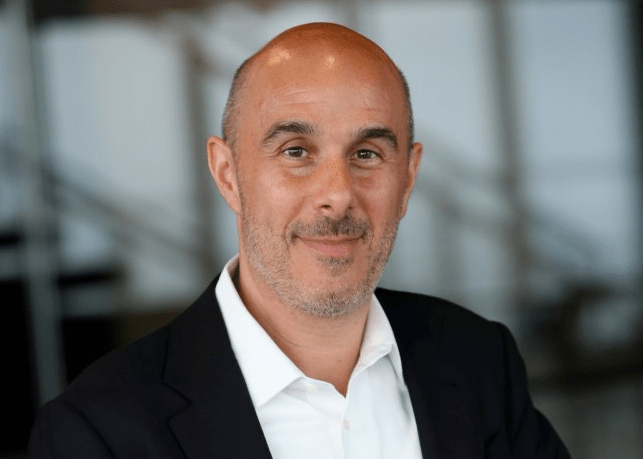The wealthy American retirement playbook hasn’t changed much since the 1950s: accumulate assets, buy property somewhere warm, and settle into a comfortable routine for your golden years. Recently, however, the definition of retirement security, and perhaps security itself, has fundamentally shifted. When it comes to personal wealth, what constitutes risk has expanded and become harder to predict. In 2025, healthcare costs have the potential to bankrupt even millionaires. Extreme weather and climate events can wash away dream homes. And, political volatility is rising in every corner of the country.
Despite increasing global instability, wealthy Americans are living longer, and thus have to reconsider the size of their retirement reserves and how they want to spend their time and capital. The popularization of remote work during the pandemic cracked open doors for different types of engagement, opening retirees to thinking beyond their borders when it comes to their future. Many are choosing to work in more flexible capacities for longer and viewing retirement less as a full stop and more as a transition to new frontiers, including philanthropy, advisory roles, and entrepreneurship. A more nomadic wealth class that prioritises flexibility is emerging, and thus is hedging their retirement plans in a new way: geography.
Modern portfolio theory has long shown that concentrated positions create unnecessary risk. Now, affluent Americans are extending that logic beyond investment accounts to global mobility. By accumulating additional passports, families can maintain their lives in America while securing a Plan B in their back pocket. This is a logical extension of the diversification principle that built their wealth.
As healthcare costs in the United States continue to rise, more families and retirees are looking beyond U.S. borders entirely for retirement security. Several entrepreneurs who have accumulated eight figures in assets have told me they still can’t be sure it would be enough should they or a family member face a serious illness. A cancer diagnosis, a chronic condition, or extended care needs can drain full bank accounts as a condition of receiving needed care in America’s healthcare system. For investors like them, access to free or more affordable healthcare elsewhere acts as catastrophe insurance against medical bankruptcy.
Beyond healthcare, climate risk will also continue to drive greater urgency for many. The cities that have historically represented the American retirement dream – Fort Myers with its beaches, Malibu with its perfect climate – now face significant and growing vulnerabilities. NOAA tracked 27 “billion-dollar disasters” in 2024 alone, compared to less than a handful each year two decades ago. Hurricanes, wildfires, droughts, and floods have evolved from rare occurrences into defining regional features for America’s most coveted retirement destinations. The market has already spoken through an increasing lack of insurance availability and major insurers like State Farm and Allstate have stopped writing new policies in California and Florida. Affluent retirees are making real estate decisions that can be better protected.
As political turmoil rises in the U.S., more Americans are seeking options abroad. “Golden Visa” web searches surged after the election, and continued to spike during moments of increased geopolitical friction. Beyond partisan concerns, many parents and grandparents say they’re worried about rising violence. Families often cite the American epidemic of school shootings – between 2009 and 2018, the U.S. experienced 288, while all other G7 nations combined recorded just five.
VIDA Capital has seen a 571% increase in American traffic since January. California and Florida residents – already traditional retirement havens – lead the demand, and Pennsylvania, Massachusetts, and Washington – cold-weather states retirees typically flee from – round out the top five sources of Golden Visa inquiries. The geographic breakdown suggests a broader recalibration of risk among both established retirees and would-be U.S. snowbirds.
When even the highest-profile celebrities (including Nicole Kidman) seek hedges against the very American system that supported their success, it signals declining confidence in core institutions. Many of these investors will never relocate permanently from America. They’re purchasing optionality insurance, while still investing in American businesses, hiring American workers, and living American lives.
Citizenship strategy has moved from a fringe consideration to standard practice among high-net-worth families, with parents and grandparents increasingly viewing passports as a form of inheritable wealth. A single investment can secure options for three generations at once – providing flexibility for aging parents, opportunities for the investors themselves, and inherited access for their children. As they have always done, wealthier retirees are thinking about the legacies they leave behind, hoping to give their children access to more assets, real estate, and, crucially, more options than they initially had. What has changed is that some are thinking twice about whether America alone guarantees that in the same way it did for previous generations.
Global opportunity, and the freedom and choice that come with it, is an inherently American value. What we’re witnessing is the individualisation of security itself – people creating personal solutions to systemic risks that institutions can’t address. At a time when change arrives faster and disruption cuts deeper, luxury is becoming less about what you have and more about where you can go and what you can do.
The opinions expressed in Fortune.com commentary pieces are solely the views of their authors and do not necessarily reflect the opinions and beliefs of Fortune.












